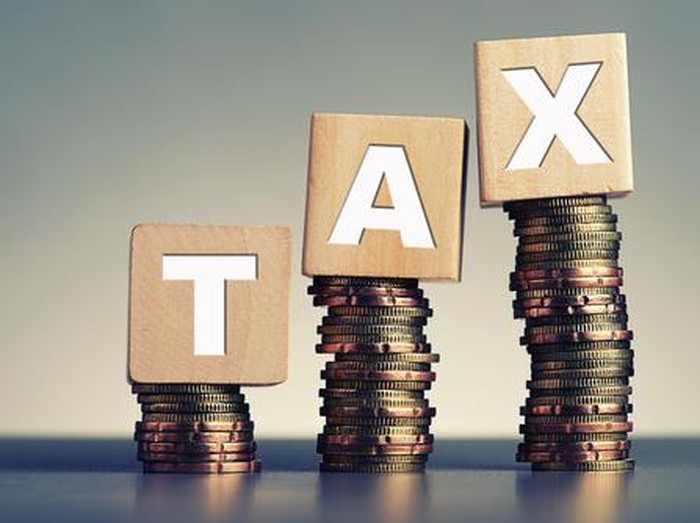

Welcome to the exciting intersection of cryptocurrency, fintech, and taxation! As governments around the world grapple with regulating this rapidly evolving landscape, Indonesia has made headlines by successfully collecting IDR 23 trillion in taxes from crypto and fintech activities. Let’s dive deeper into the impact of these digital innovations on tax revenues and explore what this means for individuals and businesses operating in this dynamic space.
Explanation of IDR 23 T Received by Government
In a significant move, the Indonesian government recently announced that it had received IDR 23 trillion from taxes on cryptocurrency and fintech activities. This substantial amount reflects the growing presence of digital assets in the country’s economy. The taxation of crypto and fintech transactions has proven to be a lucrative source of revenue for the government, enabling them to fund various projects and initiatives. The IDR 23 trillion influx showcases the potential financial impact these sectors can have on national coffers.
As more individuals and businesses engage with cryptocurrencies and fintech services, it becomes imperative for governments to establish clear tax regulations. By taxing these activities, authorities can ensure compliance and generate revenue to support public services and infrastructure development. Indonesia’s successful collection of IDR 23 trillion in taxes from crypto and fintech demonstrates the evolving landscape of finance in the digital age.
Benefits and Challenges of Taxing Crypto and Fintech
When it comes to taxing crypto and fintech transactions, there are both benefits and challenges that governments need to consider. One of the main advantages is the potential for increased tax revenue as these sectors continue to grow rapidly. By implementing taxes on crypto and fintech activities, governments can tap into a new source of income that was previously untapped. On the other hand, one of the major challenges is determining how to regulate these industries effectively. Cryptocurrency operates in a decentralized manner, making it difficult for authorities to track and monitor transactions. This lack of oversight poses a challenge when trying to ensure compliance with tax regulations.
Another benefit of taxing crypto and fintech is that it helps create a level playing field for all taxpayers. By imposing taxes on these activities, governments can prevent unfair advantages or tax evasion schemes that may arise in unregulated environments. However, one of the challenges lies in staying abreast of technological advancements within these sectors. As new forms of digital assets emerge and fintech solutions evolve, tax authorities must continuously adapt their strategies to keep pace with changing landscapes.
How Other Countries are Approaching Crypto and Fintech Taxes
Countries worldwide are navigating the complex landscape of taxing crypto and fintech industries. Some nations have chosen to embrace these innovative sectors, implementing clear regulations and tax frameworks to promote growth. Others remain cautious, opting for stricter measures to mitigate risks associated with digital currencies. In Europe, countries like Germany and Switzerland have been at the forefront of adopting favorable tax policies towards cryptocurrencies. They view them as assets or legal tender subject to capital gains taxes or VAT depending on the transaction type.
Conversely, China has taken a more stringent approach by banning cryptocurrency trading and imposing heavy regulations on fintech platforms. The government aims to maintain control over financial systems while cracking down on potential money laundering activities. Meanwhile, in the United States, there is ongoing debate among regulators about how best to regulate crypto assets and collect taxes effectively. The IRS treats virtual currencies as property for tax purposes, requiring individuals to report gains or losses from transactions. Each country’s unique socio-economic factors influence their approach to taxing crypto and fintech industries. As this dynamic landscape continues to evolve rapidly, global cooperation will be essential in creating cohesive regulatory frameworks that foster innovation while safeguarding against illicit activities.
Tips for Individuals and Businesses Dealing with Crypto and Fintech Taxes
When it comes to dealing with crypto and fintech taxes, staying informed is crucial. Keep yourself updated on the latest tax laws and regulations related to cryptocurrencies in Indonesia. Consult with a tax professional if needed to ensure compliance. Maintain detailed records of all your crypto transactions, including purchases, sales, trades, and any other activities involving digital assets. Accurate record-keeping will help you calculate your taxable income correctly and prevent any discrepancies during tax filing.
Consider using specialized accounting software or tools designed for tracking cryptocurrency transactions. These tools can simplify the process of calculating gains or losses from your crypto investments and make tax reporting more efficient. Be proactive in communicating with tax authorities if you have any uncertainties regarding how to report your crypto-related income or capital gains. It’s better to seek clarification upfront than risk facing penalties for incorrect filings later on. Don’t forget about the importance of security measures when handling sensitive financial information related to cryptocurrencies. Protect your digital assets and personal data from potential cyber threats by using secure wallets and implementing strong security practices across all your online accounts.
Future Predictions for Crypto and Fintech in Taxation
As we look towards the future of taxation in the crypto and fintech industries, it’s clear that governments worldwide will face increasing pressure to adapt their policies. With the rapid growth of digital currencies and blockchain technology, traditional tax systems may struggle to keep up with the evolving landscape. One prediction is that more countries will follow Indonesia’s lead in taxing crypto transactions and fintech services. This move could potentially unlock significant revenue streams for governments while also legitimizing these emerging sectors.
Moreover, advancements in regulatory frameworks are likely to emerge as authorities seek to balance innovation with consumer protection and financial stability. Striking this delicate balance will be crucial for fostering trust and confidence among investors and users alike. The future of crypto and fintech taxation appears promising yet challenging as stakeholders navigate uncharted territory together. By staying informed and proactive, individuals and businesses can better prepare themselves for what lies ahead in this dynamic space.
Conclusion
The increasing use of cryptocurrency and fintech platforms has significantly impacted taxation systems globally. With the Indonesian government receiving IDR 23 trillion from taxes related to crypto and fintech, it is clear that these sectors are becoming major contributors to national revenue. As more countries explore how to regulate and tax these industries, individuals and businesses must stay informed and compliant with evolving tax laws. Looking ahead, we can expect further developments in how cryptocurrencies and fintech are integrated into taxation frameworks worldwide. Stay tuned for more updates on this rapidly changing landscape!







